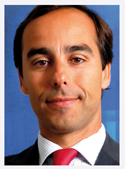New measures aimed at improving healthcare – pbbr
The Portuguese Government has approved several measures and taken a number of legislative initiatives aimed at improving the National Healthcare Service, notably focusing on access, fairness, quality and efficiency issues. Among the areas addressed, advertising and promotion regulations applicable to medicines and medical devices were the subject of legislative amendments.
The Government’s website reports the approval of general principles governing the promotion and advertising of medicinal products and medical devices by manufacturers, distributors and sellers in line with best international practices.
Although the legal statute relating to these measures has not yet been published, the Portuguese medicines agency, Infarmed, has released some information on its contents.
It should be noted the Medicines Act, approved by Decree-Law 176/2006 of 30 August, governs the advertising and promotion of medicines and establishes the legal requirements, which have been amended several times.
In 2013, Decree-Law 20/2013 of 14 February introduced a ‘transparency platform’ – available on Infarmed’s website – where donations, sponsorships and any other amounts granted or paid by pharmaceutical companies and other stakeholders to healthcare professionals or institutions, or patients organisations, have to be registered. The notification obligation also applies to the beneficiaries of the relevant donations, sponsorships or grants. Thus if a pharmaceutical company invites a doctor who is totally independent from it to participate in a scientific event and pays him to give a lecture, such a payment has to be registered with the transparency platform both by the company and the doctor.
These requirements were further strengthened by Decree-Law 128/2013 of 5 September. Currently, these reporting obligations apply to any payments above €60 made by entities that operate in the medicines sector, except for payments made in the scope of an employment relationship, or other regular work relationship.
Although the regulatory framework for medical devices arising from Portuguese legislation also addresses advertising and promotional practices – with the aim of preventing conflicts of interest – the above transparency reporting requirements in Infarmed’s electronic platform do not apply to medical devices yet.
Considering the significant growth of the medical devices market in recent years – and the fact that currently, medical devices represent an annual public expenditure of approximately €700 million for the Portuguese healthcare service – the government has decided to apply to the sector the same transparency requirements that exist for medicines.
This measure is in line with recent international guidelines, notably the Code of Ethical Business Practice, adopted in December 2015 by MedTech Europe, an alliance of European medical technology industry associations including Eucomed. The above mentioned legislative amendments approved by the government also address the existing requirements applicable to medicines, releasing the beneficiaries of sponsorships or payments made by the pharmaceutical industry or other stakeholders from the obligation to register such payments in the transparency electronic platform. The requirement will be replaced by the opportunity to validate the payments received.
Advertising and promotional practices raise important ethical issues where the health sector is concerned, and that is the reason why establishing high standards of good practices has been the trend with regard to recent legislative initiatives applicable to medicines, medical devices and other areas of the health sector. In this respect the recently enacted legal framework for advertising in the health sector, Decree-Law 238/2015 of October 14, is noteworthy. The legal statute envisages governing advertising practices in the health sector not covered by a specific framework such as medicines or medical devices. The competent entity to supervise compliance with the legal statute is Entidade Reguladora da Saúde, which considers that Decree-Law 238/2015 only applies to the advertising practices of services, thus excluding products.
In conclusion, due to this interpretation, while the trend has been to strengthen compliance requirements applicable to advertising in the health sector – and that is clearly reflected in the aforementioned legal amendments – other health products not classified as medicines or medical devices, such as food supplements among others, benefit from a much softer legal framework.
Rita Roque de Pinho is of counsel at PBBR. She can be reached at rita.pinho@pbbr.pt











